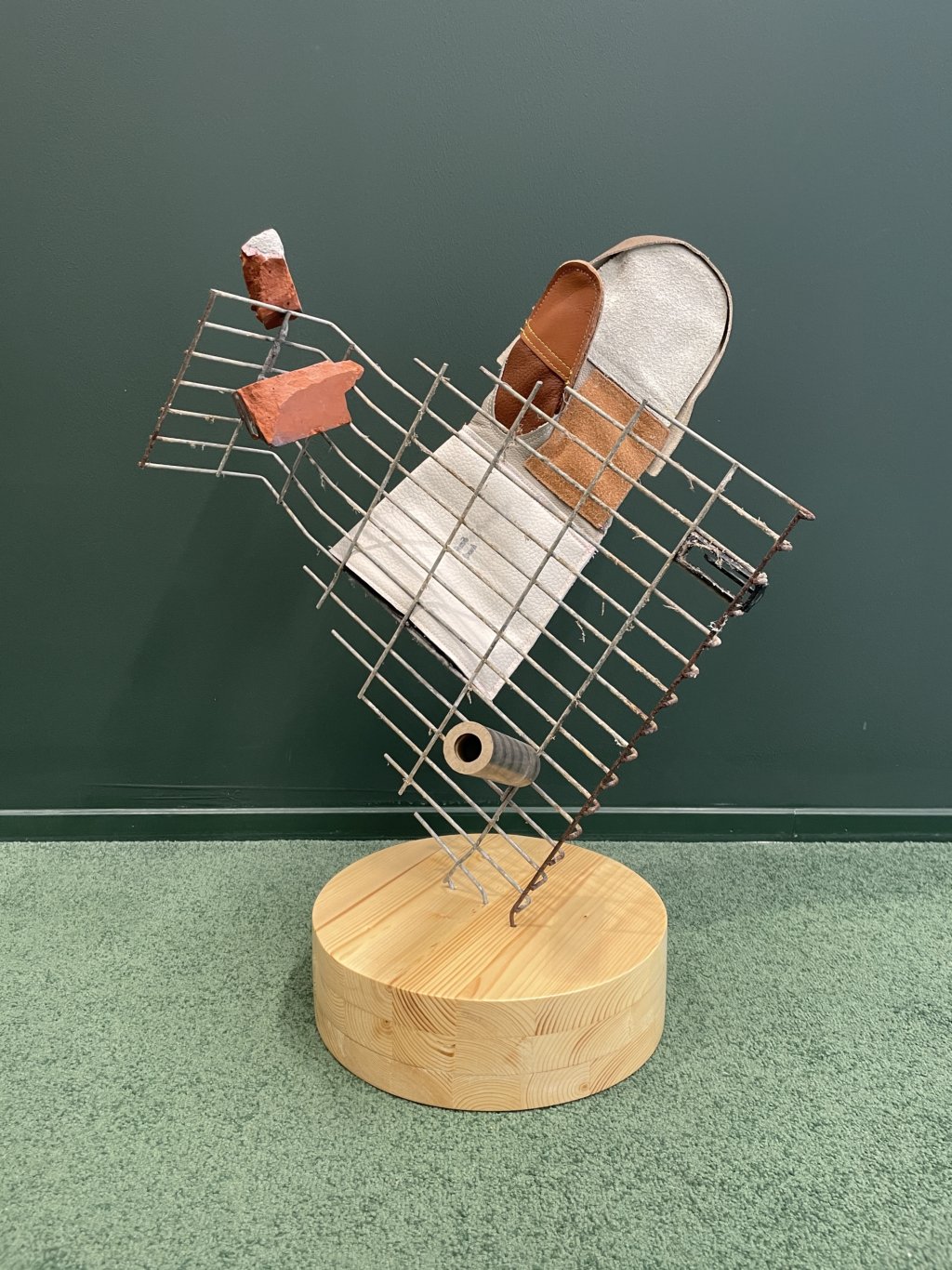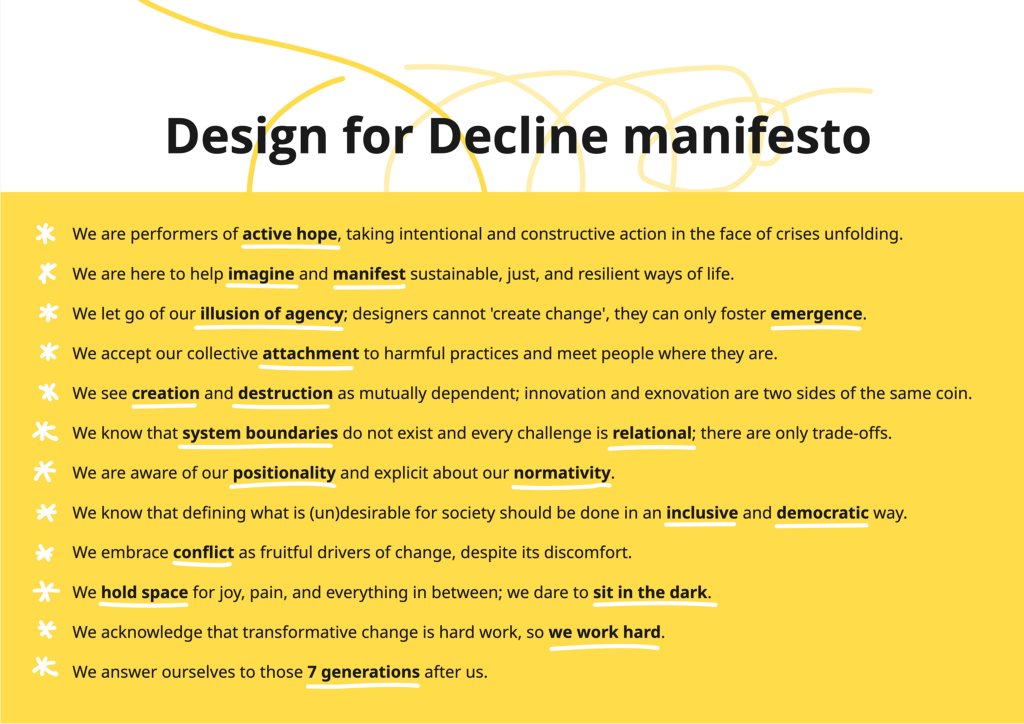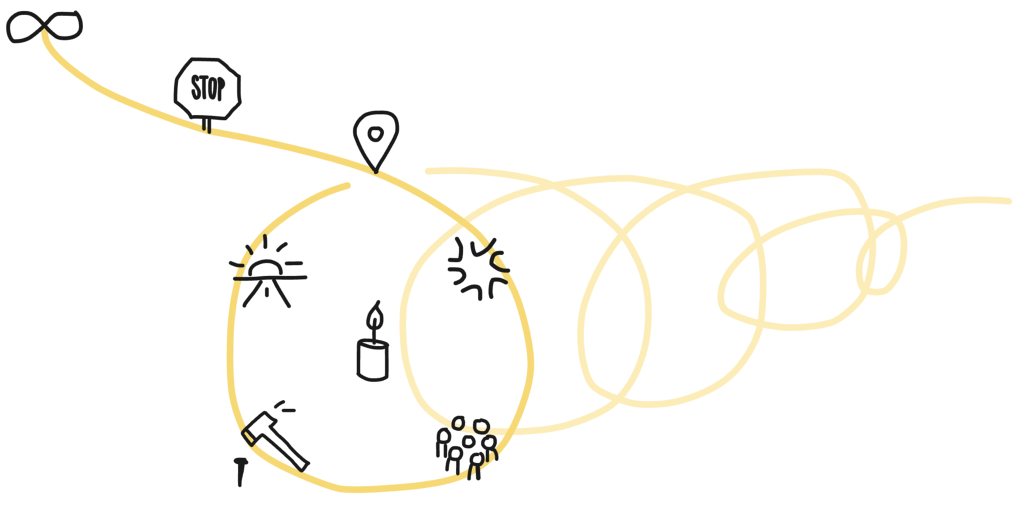Technological innovation is often seen as the ‘silver bullet’ in both societal transitions and design practice. However, effective transformation also necessitates the deliberate breakdown of existing practices, structures, and cultures, also known as ‘exnovation’. Little is known about what is needed to support a process of collectively letting go of what no longer serves society, such as frequent flying, excessive animal consumption, and fast fashion. This project explores the ‘whys’, ‘whats’, and ‘hows’ surrounding decline in transitions.
Are you willing to let go of Modernity’s perks?
To better understand phase-outs in transitions, we researched four practices that have been successfully terminated in the Netherlands - mink farming, pulse fishing, laying hen battery cages, and gas mining. It revealed the different roles actors play in phase-outs and how (the perception of) justice is of central importance. We made an art piece from leftover materials from the four practices to promote the topic among policymakers.
To support phase-outs in practice, we also developed an interdisciplinary ‘Design for Decline’ approach, anchored in the literature and 15 expert interviews. It presents eight conditions vital for systemic breakdown to unfold, which practitioners can nurture - e.g. ‘Curating Conflict’, ‘Holding Space for Pain’, and ‘Imagining Futures after Loss’.
We complemented the approach with a manifesto to mobilise practitioners and to help them transcend their innovation bias. We are currently testing Design for Decline in practice to further advance this novel approach.

Deeply rooted in design is a bias towards innovation, novelty, and green growth. Concurrently, we are shooting through our planetary boundaries at the speed of lightning - much of which is the result of extractive and polluting lifestyles. While clean technologies have an important role to play in sustainable and just futures, there is increasing evidence that their effect does not suffice. A deliberate decrease of production and consumption is crucial to ensure a thriving planet in a timely manner. This project explores this ‘forgotten half’ of sustainability transitions and provides actionable insights to put it directly into practice. However, our work is novel and in progress - its value for society remains to be determined in real-life settings.





